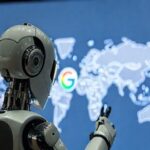
Cisco Buys EzDubs: Enhancing Real-Time Translation
Cisco Acquires Translation Startup EzDubs Cisco has recently expanded its technological arsenal through the acquisition of EzDubs, a startup specializing in real-time translation services. This...


Cisco Acquires Translation Startup EzDubs Cisco has recently expanded its technological arsenal through the acquisition of EzDubs, a startup specializing in real-time translation services. This...

Aspora Simplifies Bill Payments for Indian Expats Fintech startup Aspora, backed by Sequoia Capital, is streamlining how the Indian diaspora manages bill payments back home....

Google’s AI Flight Deals Takes Off Globally Google is expanding its AI-powered ‘Flight Deals’ tool globally, enhancing travel planning within Search. They’re introducing innovative features...

DoorDash Confirms Data Breach Affecting User Data DoorDash recently confirmed a data breach that exposed sensitive user information, including phone numbers and physical addresses. The...

Sakana AI Raises $135M to Advance AI in Japan Sakana AI recently secured $135 million in Series B funding, achieving a valuation of $2.65 billion....

Buy Now, Pay Later’s Rapid Expansion: A Cause for Concern? The ‘Buy Now, Pay Later’ (BNPL) model is experiencing rapid growth. But is this financial...

Beloved SF Cat’s Death Fuels Waymo Criticism The recent death of a beloved San Francisco cat has sparked criticism directed towards Waymo, Alphabet’s self-driving car...